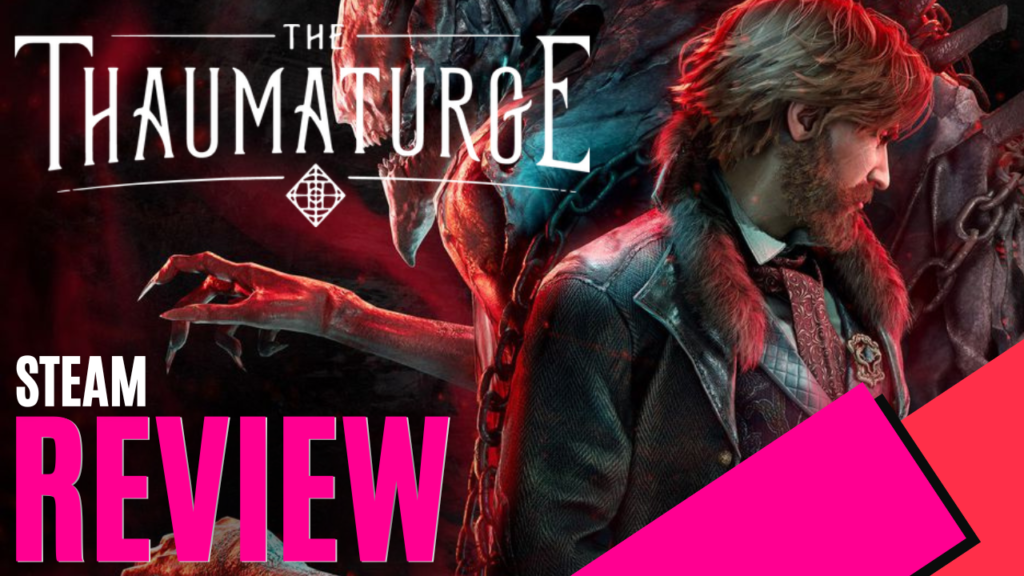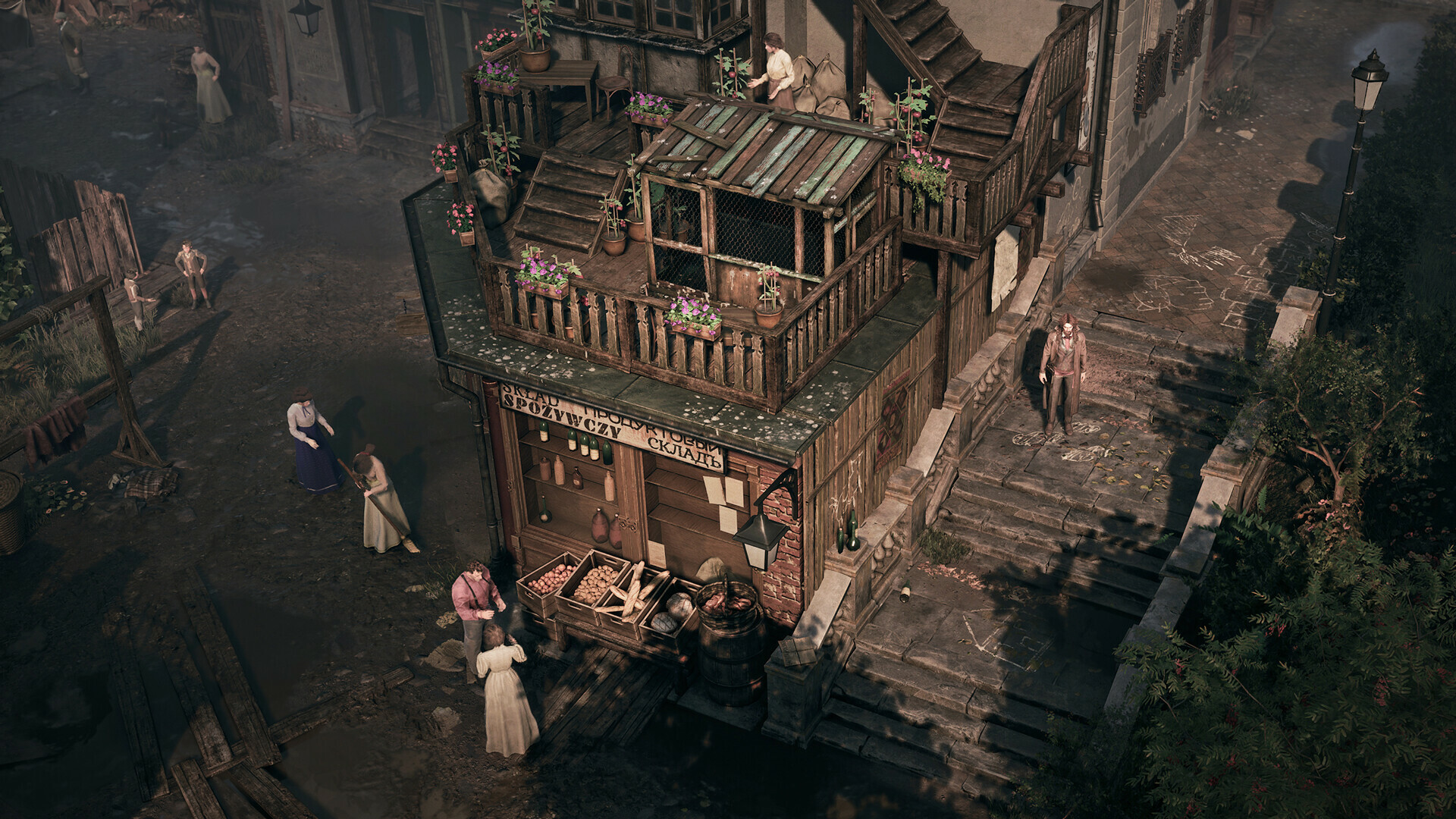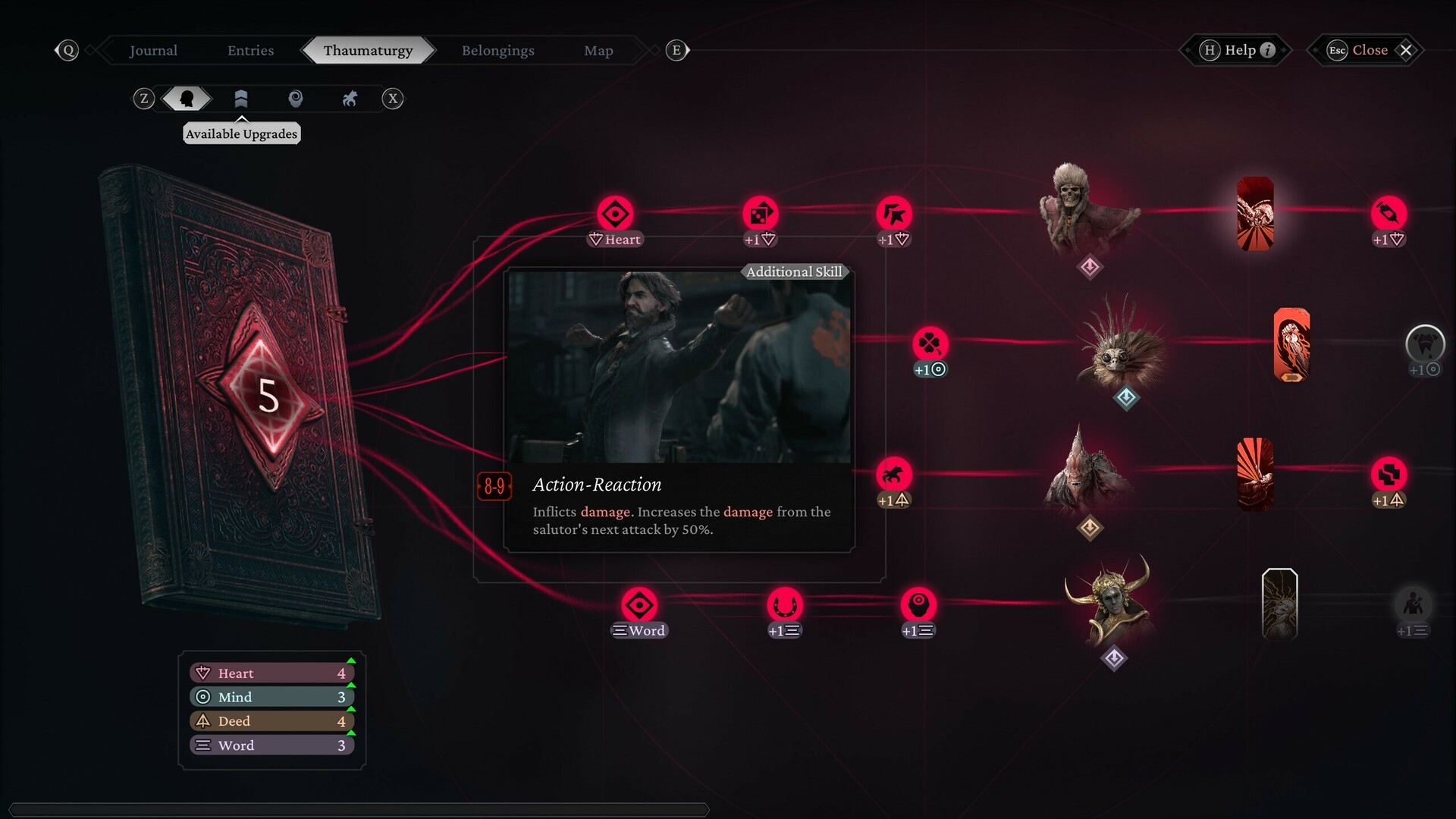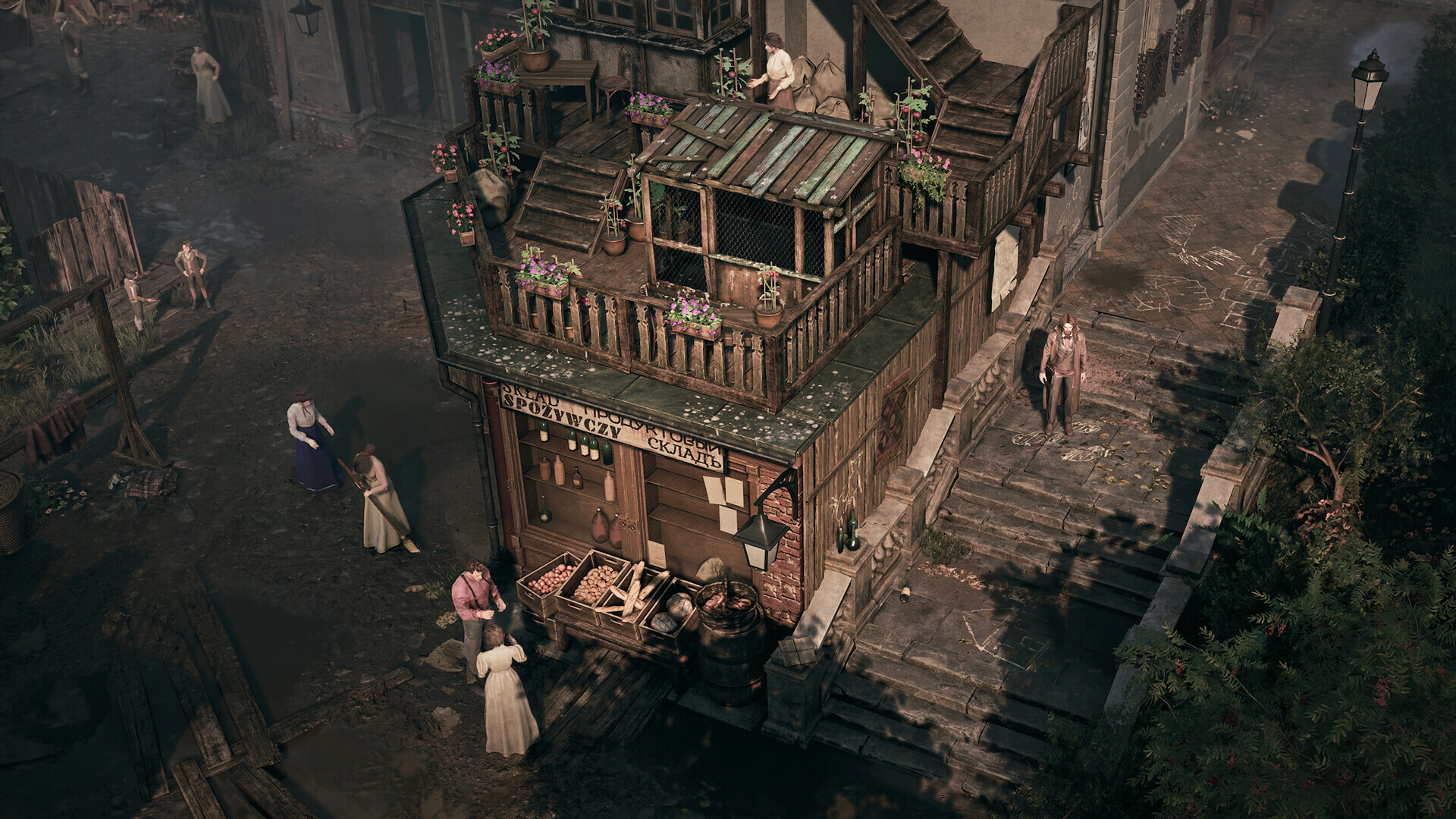
I enjoy good story-driven RPGs, especially ones with solid exploration, impactful dialogue choices, and intricate turn-based combat. ‘The Thaumaturge’, by Fool’s Theory, published by 11 Bit Studios, sets out to achieve exactly that. It’s an RPG about facing inner demons and seeking greater truths. I spent a decent chunk of time exploring the world of The Thaumaturge; I’m intrigued but not entirely immersed yet.
Set in an alternate 20th-century Poland, specifically 1905 Warsaw, we follow Wiktor Szulski as he investigates his past and seeks to rid others of the demons that possess their souls. Wiktor isn’t your run-of-the-mill guy, though; he’s a Thaumaturge, one that can see demons; they can also be known as miracle workers or, if you like, soul doctors. Wiktor’s abilities are draining as his connection to his demon, Upyr, the embodiment of Pride, is waning. Hearing of a mysterious healer in a small village in Russia, Wiktor seeks a cure for his ailment. Once other demons start revealing themselves, it becomes apparent that the Thaumaturge has his work cut out for him.
This alternate version of history is set during the Russian Revolution, a time of social and civil unrest and a looming threat of war. With a blend of Slavic and Russian folklore, most notably Salutors – demons that embody the deep struggles in a person’s soul. The Thaumaturge leans into its gloomy, supernatural themes with an isometric view, a realistic art style, and even darker yet awesome demon designs.

Warsaw and its surroundings are dreary, but the ever-present melancholy is strangely beautiful, with incredibly detailed city zones. Wiktor explores his surroundings to investigate clues, make observations, and deduce truths. Of course, Wiktor is attempting to repair the bond with his own Salutor while also detecting Flaws, the characteristics embodied within a person leading them to be possessed, with the ultimate goal of ridding them of the demons inhabiting their souls.
Investigating various areas involves Wiktor looking for clues, multiple items, or notes that let him draw conclusions and find the victims. Finding clues is surprisingly easy, with the ability to find trails based on evidence of what people have touched. Gaining insight by finding clues is very simplistic. Sometimes, it felt too easy when I would have liked to have more of a challenge in sourcing and piecing together clues myself. It gets interesting how these conclusions influence Wiktor’s understanding of others.
Characters in The Thaumaturge are well fleshed out, making it easy to begin forming bonds with them and attempting to dig into the core of who they are. Dialogue can reveal key information and possibly alter the outcomes of Wiktor’s efforts. Dynamics between characters can be engaging, and I often questioned Wiktor’s bonds when looking for answers.
One notable occasion is when he reunites with a childhood friend, bringing up a point that can massively alter their relationship moving forward depending on the dialogue choices made. Choosing to be civil or more aggressive makes for some pivotal dynamic changes.

Wiktor’s perception of the world around him and others comes in handy with the ability to manipulate others by casting seals. Dialogue with others can reveal key information, but one wrong move can lead to a fight.
A Thaumaturge can tame Salutors and use them during combat. Turn-based combat alongside bonded demons can reap interesting results. Fights consist of each person or demon taking actions; for Wiktor, he can freely change between different Salutors with various abilities to turn the tides in battle. There’s some foresight needed to make the most of combat scenarios; thankfully, the combat UI has an action queue, giving the player a hint to the enemy’s upcoming movement, allowing Wiktor to devise a plan of attack before their turn.
A combination of quick and heavy attacks, a stun ability, and inflicting various status ailments. Some demons focus more on damage, while others provide more support–based moves. Combat can be tricky, and I often found myself cutting it pretty fine for the most part. I didn’t enjoy combat; it felt repetitive and underwhelming.
Changing difficulties at will was my saving grace to help me survive some close confrontations. Upgrades to demons and Wiktor’s powers can help these encounters go a lot smoother, but fights are one of the less interesting points of the game. Thaumaturgy points are gained through story progression and post-combat. These spec into Dimensions – heart, deed, mind, and word impacting, each a type of Salutor.

Where the combat lacked oomph, the audio design more than made up for. Combat music, in particular, is quirky and instrumental. World music adds to the overall atmosphere with a blend of often unnerving trills of string instruments and a healthy dosage of piano, all tapping into the feeling of the period with a dash of the supernatural. The Thaumaturge is fully voice-acted; on most occasions, the delivery is decent, but occasionally, it can be pretty monotone and characters can look a tad soulless. The banter and bonds between characters stood out, which kept me interested in the characters.
On PC, I had a few frame drops during gameplay and some slow loading times during loading screens, but the game ran well enough for the most part. Graphically, on higher settings on a medium-high-end gaming rig, I had some texture drops, but mostly, the world looked detailed on medium to high settings.
The Thaumaturge has a great concept and some intriguing moments, though being in the mood for it was the biggest issue. The overarching mystery and lore of The Thaumaturge is where I can see most of my investment in the game rather than the combat or investigation mechanics. For fans of role-playing games like ‘Disco Elysium’ or those seeking something slow-paced and story-driven, this game might fill in some gaps, but for fans of intricate turn-based combat, The Thaumaturge could have hit better.

The Good
- Interesting world, characters, and lore
- Eerie and impactful music and voice acting
- The opportunity to shape the story is interesting
The Bad
- Combat can feel repetitive
- Investigations can be too simplistic
- Some frame drops and slow-load screens








